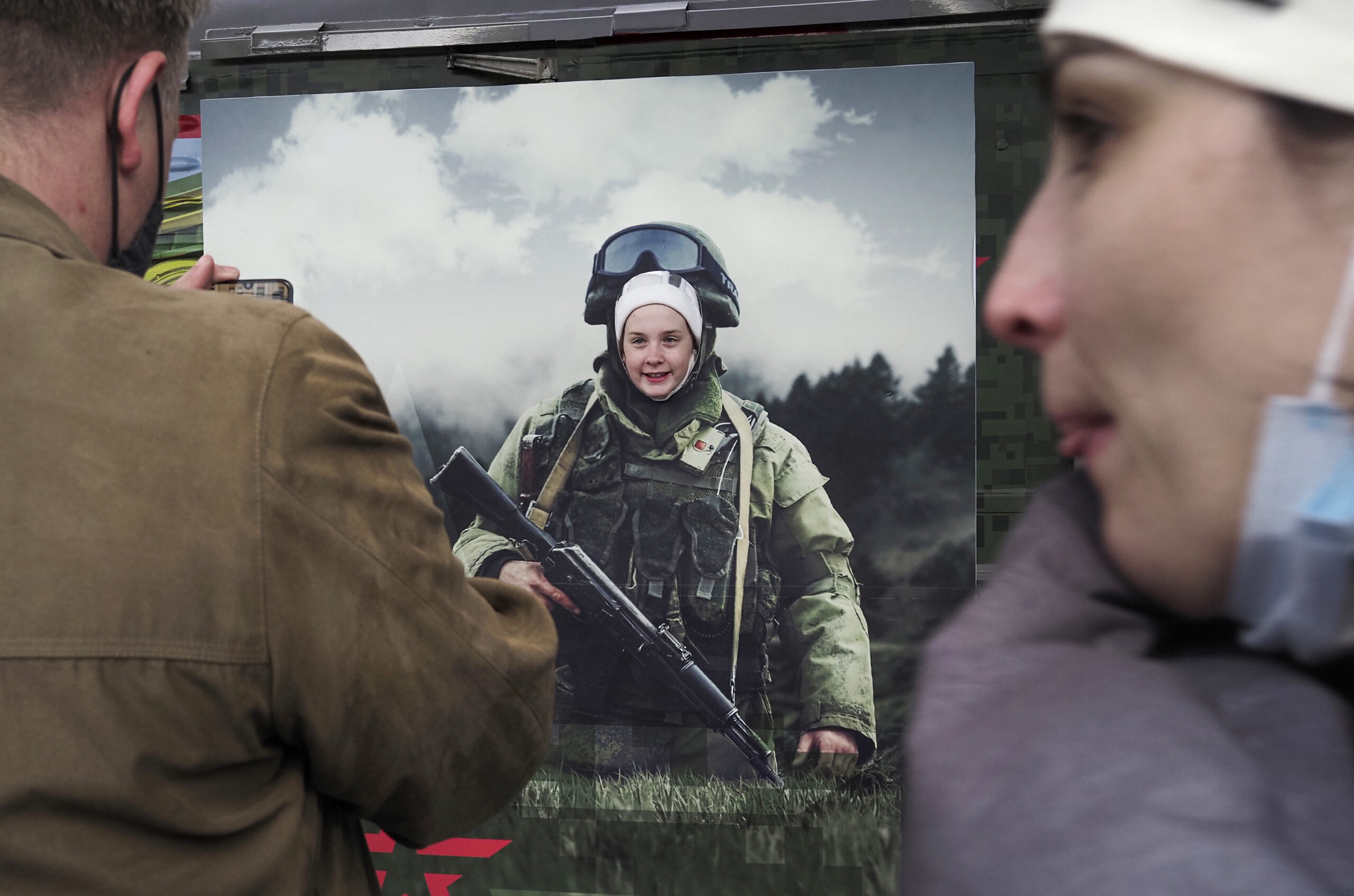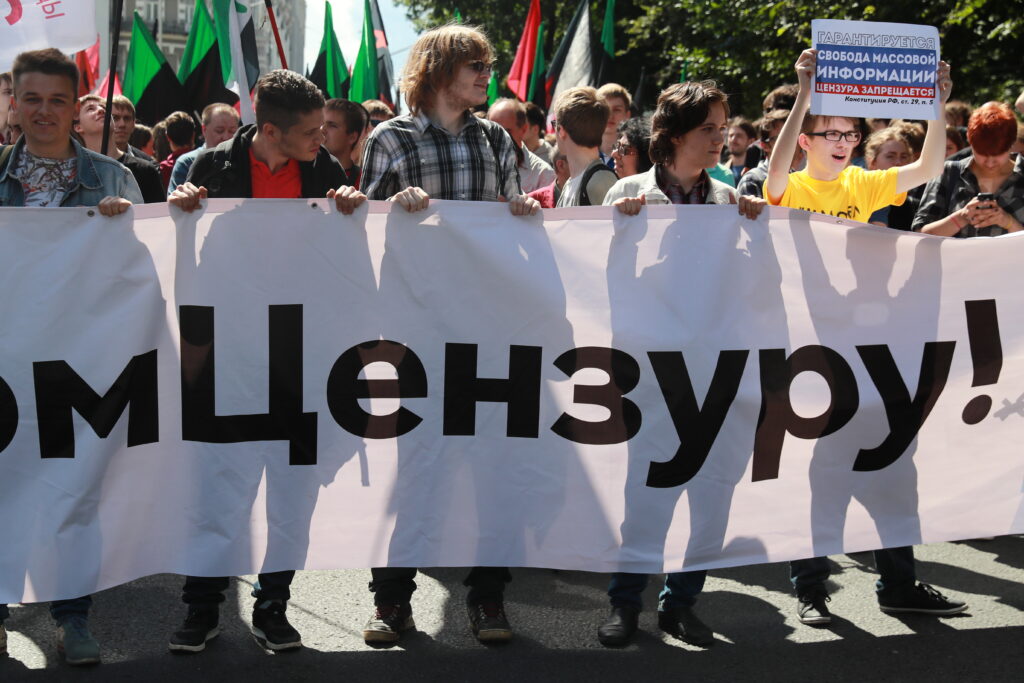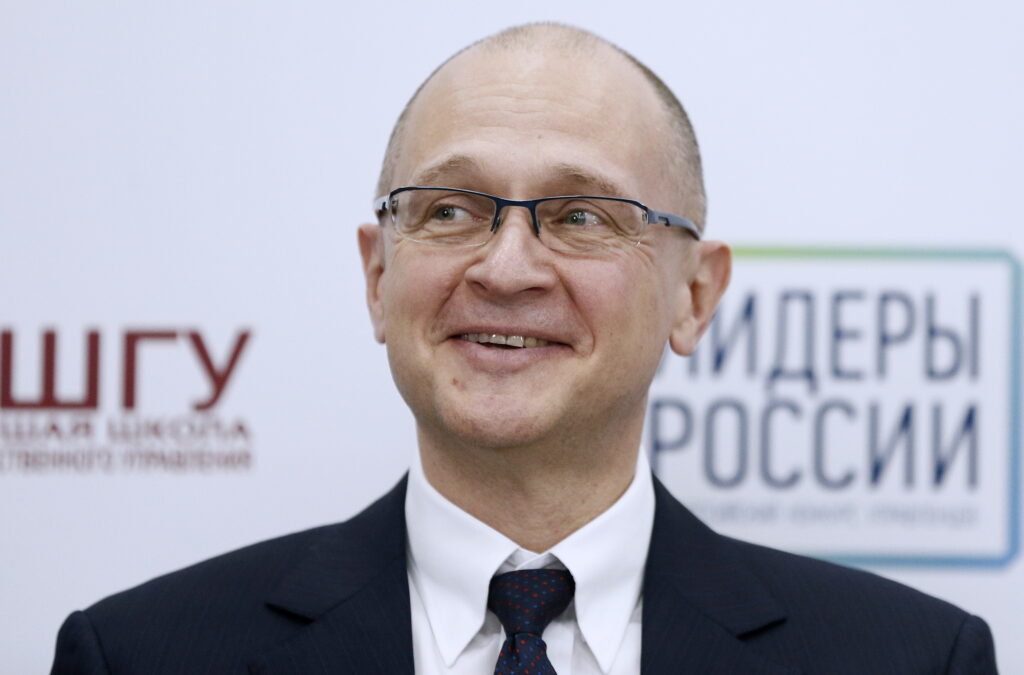Members of the Russian Ministry of Justice are currently developing a bill which will give «Russophobia» a legal definition. While the term suggests negative treatment of a person based on their Russian nationality, the authoritarian Russian regime employs the notion of Russophobia as part of its broad propaganda scheme to justify its unprovoked war on Ukraine, in turn limiting the Russian identity to a single concept and destroying the plurality of what it means to be Russian. While the law will likely prove difficult to enforce outside Russian borders, a law defining what it means to be against Russia and circuitously defining what it means to be Russian, along the largely ethnic and religious-based lines of identity which government officials have curated, can be weaponized by the authorities to broaden oppression against a variety of non-conforming Russians. Over 120 ethnic groups live within Russian borders; how can peoples of varying ethnic, religious, and cultural backgrounds all fit into the regime’s monolithic view of what it means to be Russian? Considering the term’s increasingly focal position in Kremlin discourse, it is critical to explore the historical origins of «Russophobia», how the regime uses and warps its meaning, and what its continued development could mean for 21st century Russia and those who identify as Russian.
«Russophobia» was first coined by the Russian poet and diplomat Fyodor Tyutchev in 1867 in complaint of some Russians’ movement towards a liberal, «European» way of life and away from a slim set of traditional values linked to ethnic Slavic unity, tsarism, and the Russian Orthodox Church. Since its conception, successive Soviet and Russian governments have deployed the Russophobia argument to police dissidents and dismiss substantial regime criticisms as Western xenophobia. Racist Nazi ideology proclaiming the sub-humanity of Eurasian peoples in relation to their proximity to mongoloids provided fertile ground for the narrative. Even Allied military and political leaders decried Russians as fundamentally «other» and incomprehensible. From this rhetoric sprouted a domestic refrain that the Western world sought to destroy Russia on an ethnic level. The term first appeared in a Russian dictionary in 1935 as a key piece of Stalinist propaganda used to galvanize nationalism by directing public fear and frustration against the West. Soviet officials claimed that American diplomacy was centered around inciting an ethnic hatred of Russians, as opposed to legitimate criticism of the regime. Concurrently, Soviet ideologues and academics aggrandized the scapegoat that Russophobia provided into «Eurasianism» — a broad theory of history and international relations that posited the country as a unique superpower bolstered by the nation’s strong bonds between various Eurasian ethnic groups.
Following the collapse of the Soviet Union and the introduction of liberal Western values to the country, far-right Russian nationalists who had absorbed the Soviet Russophobia narrative regurgitated their fears onto a variety of perceived «threats» to the Russian «soul», including fellow Russians who subscribed to more liberal, globalist perspectives. At the same time, the Yeltsin administration implemented a modern unifying system for the newly formed Russian Federation, institutionalizing the term rossiiane to define Russians on the basis of their state, rather than ethnic group — russkii. The imposition of this identity, alongside the existential dangers to Russian culture that the Russophobia narrative propagated, led to increases in ethno-nationalism and internal xenophobia. Social attitudes towards ethnic minorities deteriorated and extremists increasingly preached and perpetrated violence against minorities throughout the 2000s.
In the 21st century, the Putin regime and its ideological leaders channeled rising ethno-nationalism into an anti-Western narrative of Russophobia, binding the country together as supra-ethnic rossiiane in their struggle against the real enemy — the «Anglo-Saxon» world, and blaming grievances on inordinate discrimination. Russian officials blanketed their dialogue with «Russophobia» in reference to any Western action or reaction against their country — a practice which skyrocketed following the 2014 invasion and occupation of Crimea. It was «rampant Western Russophobia» behind U.S. visa sanctions enacted over Russian human rights abuse, U.S. claims of Russian election meddling, negative Hollywood depictions of Russia, and more. The Russian Federation’s 2019 special report to the UN describes over a decade of Russophobia complaints. State-owned media outlets contributed to the narrative by saturating the Russian media space with disinformation that confirmed the Western agenda against Russians.
As the regime increased the use of Russophobia across both national and international channels, domestic multilateral discourse defined its victim — the Russian — around a few key conservative pillars, demonstrating to the public that de facto «Russophobia» does not describe discrimination on the basis of Russian citizenship — against the rossiiane, but rather refers to ethnic and religious discrimination against the Slavic, Orthodox swath of Russians and associated traditional values — the russkii. Government officials compared Russophobia to a «genetic rejection of Slavs». Presidential addresses now make being Russian conditional on adherence to specific cultural values — establishing that assimilation is a prerequisite to building Eurasianism’s «multi-ethnic alliance of Eurasian peoples». Media, pop culture, and religious figures further reinforce narrow lines of identity, assigning a slew of traditionally Slavic and Orthodox traditions to the public conception of Russian. Since the full-scale invasion of Ukraine in February 2022, the regime has superimposed horrific violence over these state values and in the process, equated the Russian identity with war; On national and international platforms, government authorities blame Russophobia for the unjustifiable war. While preaching the country’s unique strength in its diversity, the Russian state in practice demands its citizens commit to a clear-cut culture and value system closely aligned with a single ethnic and religious experience if they are to be considered truly Russian.
The Kremlin refines and enforces this limited Russian identity in their long-term intent to homogenize the Russian «soul», nimbly utilizing an appeal to purity to exclude those who do not fit within the superficial confines of self. Leaders empowered state policy to preserve and protect Russian «spiritual and moral values» and created the «DNA of Russia» project to unite the Russian academic community around a meta consolidation of Russian worldview and build social cohesion. This government-supported research will «scientifically» qualify Russian-ness around regime lines, shaping generations of citizens to come. This summer, the Higher Education Ministry instructed schools across the country to institute a new mandatory class instilling students with strict pillars of Russian identity. The regime has carefully reduced the Russian identity to one Slavic, Orthodox, pro-war single story and implanted it across every sphere of Russian life — anything at odds with this laundry list is labelled anti-Russian.
Today, the concept of Russian identity that the Kremlin enforces affects the perception of millions of Russians living abroad. In efforts to demonstrate unwavering support for Ukraine, many Western countries are reconsidering their relationship to Russian culture. Public and private actors take actions which appear discriminatory against Russians — cancelling Dostoevsky and Tchaikovsky, graffitiing Russian homes and businesses, imposing a number of travel restrictions on Russian citizens, etc. Russian identity has become a sensitive and shameful fact for millions because the regime itself has made Russian-ness synonymous with war. To many, it seems like «the words ‘good’ and ‘Russian’ can scarcely coexist». Some experts, meanwhile, point out that the only actor at fault for the harm done to Russians and Russian culture is the regime itself. While it is Russia who has bound the Russian identity to a narrow set of values and violence, acts interpretable as Western «cancellation» of Russian culture largely appear to self-fulfill the Russophobia propaganda narrative, confirming discrimination. The Kremlin capitalizes on this sense of othering and victimization many Russians feel to reinforce the rossiane identity as a source of unity and strength against adversity.
Prolific government «Russophobia» arguments demonstrate how Russian authorities police identity itself and blanket the country’s multifarious population with one state-determined concept of self. By positioning this war as a fight for the Russian «soul», the regime not only stokes «Western Russophobia» but also condemns diversity as deviation. The Kremlin insists on total social, cultural, and ideological conformity of the 16.4 million Muslim Russians, the 21 ethnic federal republics, the millions of first, second, and third generation immigrants, and many more who maintain unique cultures and perspectives. In response to pressure to conform, some minority individuals acculturate. Many find national unity in the war and reconcile cultural differences by emphasizing similarities, such as those between Islam and Russian Orthodoxy. Recent Russian census data suggests the impact of identity-based propaganda on the population: self-identifying ethnic minorities in the country fell by hundreds of thousands of individuals, and those who refused to provide an ethnic identification grew to almost 16.5 million, illustrating the complete assimilation of identity the Russian authoritarian regime has enforced through its depiction of Russophobia and careful delineation of Russian-ness.
Looking ahead, the compulsory contraction of the Russian self could spark shifts in the way many Russians self-identify. Russians in exile struggle to decide who is «us» and who is «them». Since the start of the war on Ukraine, some minority individuals have amplified their voices on the international stage to oppose the war and distinguish themselves from the Kremlin’s definition of Russian. Abroad, some Russians form new, inclusive communities with others who refuse to conform to Kremlin lines. They protest the war, resist authoritarianism, and support Ukrainians, reconfiguring and repositioning their identity in a world where being Russian is synonymous with unjustifiable war. Countering the narrative of Russophobia in and outside of the country requires drawing new lines of self — expanding what it means to be Russian to reflect the rich variety of peoples who oppose their government’s unjustifiable violence and who reject assimilation to the regime’s qualifying tenets of identity.










